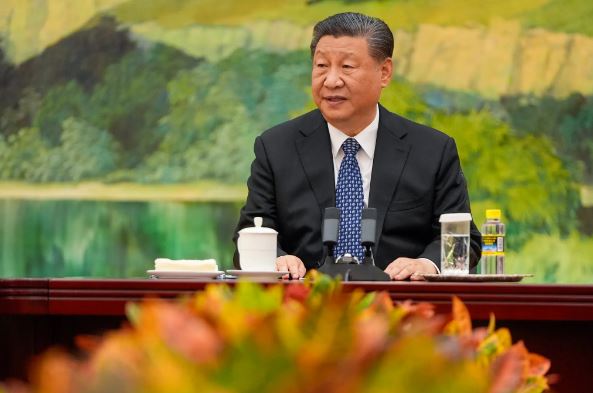Xi Jinping, the Chinese president, embarks on his first visit to Europe in five years with a clear agenda: to exploit opportunities to weaken the continent’s ties with the United States and establish a global order less dominated by American influence.
Xi’s itinerary includes visits to France, Serbia, and Hungary, countries that view China as a crucial counterbalance to American hegemony and seek to strengthen economic cooperation with Beijing. Amid tensions between China and much of Europe over various issues such as China’s alignment with Russia and concerns about its surveillance activities, Xi aims to showcase China’s growing influence in the region while pursuing pragmatic diplomatic relations.
For Europe, Xi’s visit poses a delicate balancing act between China and the United States, raising concerns in Washington about potential attempts to divide Western allies. His strategic timing, particularly coinciding with the 25th anniversary of the NATO bombing of the Chinese Embassy in Belgrade, underscores China’s intent to challenge Western dominance and advocate for international law.
Xi’s choice of France as his first stop is significant, given President Emmanuel Macron’s emphasis on Europe’s strategic autonomy and his efforts to position the European Union as a global power independent of American influence. Macron’s calls for a multipolar world align with China’s vision, making France an attractive partner for Xi.
Despite differing governance systems, Macron and Xi share a belief in the need for a new global order that accommodates shifting power dynamics. Xi’s subsequent visits to Serbia and Hungary, where China enjoys significant economic influence, further demonstrate his efforts to cultivate allies within Europe and undermine American leadership.
However, Xi’s diplomatic charm offensive faces challenges, including concerns within Europe about the balance between economic opportunities in China and national security risks. The European Union’s complex stance on China, viewing it as both a partner for cooperation and a systemic rival, reflects the continent’s struggle to navigate its relationship with Beijing.
Xi’s visit also coincides with tensions between Europe and China over issues such as unfair trade practices, exemplified by the European Union’s investigation into Chinese electric vehicle subsidies. This underscores the complexities of EU-China relations, particularly regarding economic competition and strategic interests.
Despite efforts to present a united European front during Xi’s visit, divisions persist within the continent, particularly concerning attitudes toward Russia and China’s involvement in the Ukraine conflict. While Macron seeks Chinese support in resolving the Ukraine crisis, Beijing’s reluctance to condemn Russia’s actions complicates European efforts to enlist Chinese cooperation.
Nevertheless, Macron remains determined to leverage Xi’s visit to advance Europe’s relevance in global affairs, especially amid uncertainties surrounding American leadership. While China’s rise poses challenges to Western liberal democracy, European leaders recognize the need to engage with Beijing to shape the future world order.
Xi’s visit to Europe underscores China’s strategic efforts to expand its influence on the global stage and challenge American dominance. While European countries navigate their complex relationships with both China and the United States, Xi aims to capitalize on opportunities to strengthen ties with key European partners and reshape the geopolitical landscape in China’s favor.

